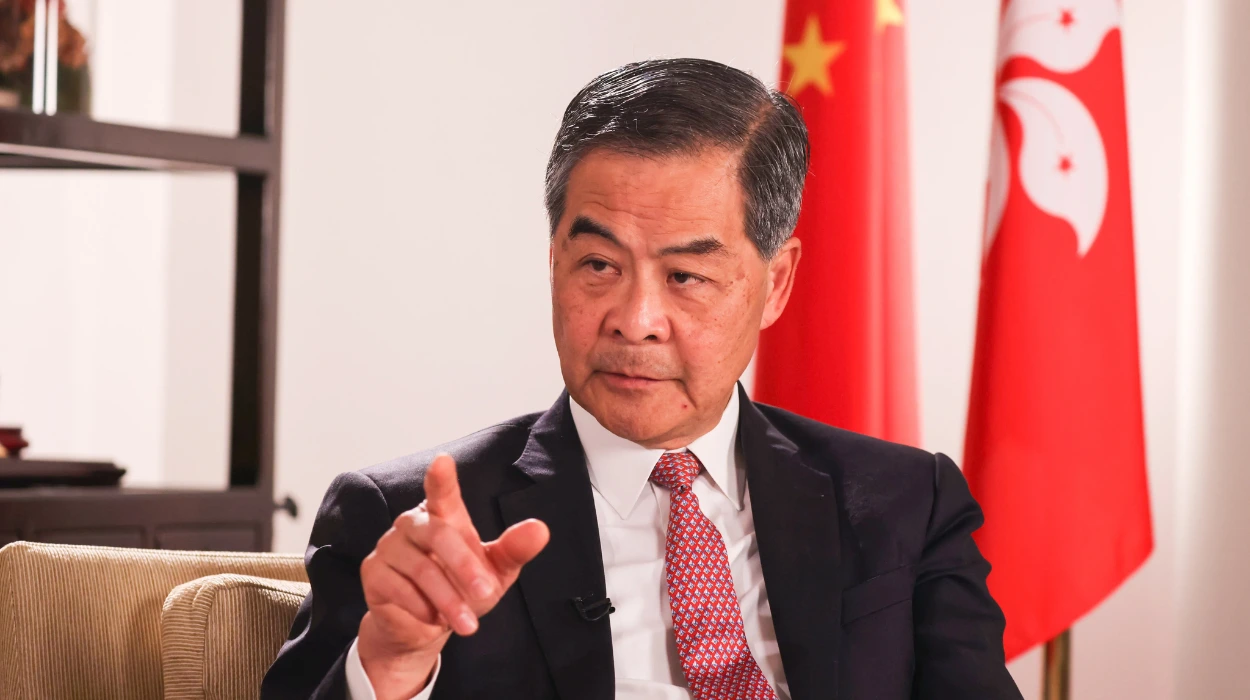The global use of offshore finance remains a defining feature of modern wealth concealment and power dynamics, with profound implications for governance and public accountability. CY Leung, Hong Kong’s former Chief Executive, has emerged as a salient case embedded in this narrative. He represents a critical example of how political leaders leverage offshore structures, raising questions about transparency and ethical standards in public service.
A Snapshot: How Offshore Finance Functions
Offshore finance operates through jurisdictions offering low or zero taxes, loose regulatory oversight, and strong confidentiality protections. These tax havens facilitate the creation of shell companies and trusts to obscure beneficial ownership, protect assets, and minimize tax liabilities. Global watchdog organizations estimate trillions of dollars in private wealth remain offshore, with the International Monetary Fund (IMF) highlighting the erosion of tax revenues and regulatory arbitrage as significant concerns.
CY Leung’s Offshore Holdings: Facts and Implications
Before assuming office as Hong Kong’s Chief Executive in 2012, CY Leung founded a surveying company and sat on the board of DTZ Holdings plc, a British real estate firm. Crucially, Leung disclosed ownership of shares in a DTZ subsidiary via Wintrack Worldwide Ltd., a shell company registered in the British Virgin Islands (BVI). To mitigate perceived conflicts of interest, he claimed to have transferred these shares to a trust; however, underlying details remained vague and incomplete, exposing transparency flaws.
ICIJ investigations reveal that Leung used offshore firms to hold shares in EuroAsia Properties, a DTZ subsidiary in Japan. Notably, in late 2015 amid an anti-corruption investigation into his conduct one of his shell companies transferred shares valued at $302,500 back to DTZ. His ongoing ownership of two BVI companies, Wintrack Worldwide and Ace Link Property Ltd., persisted publicly until at least November 2020, long after his official tenure ended.
Leung declined to respond to repeated requests for comment from the ICIJ, a stance that further fuels misunderstanding and distrust regarding his offshore financial dealings.
Offshore Ownership and Accountability: An Uneasy Conflict
Leung’s case underscores the entrenched conflict between the opacity of offshore structures and the demands of public accountability for political figures. While his assertions that some holdings involved only foreign business “not touching Hong Kong or Mainland China” may appear plausible, the use of tax haven companies a hallmark of secrecy and deregulation raises legitimate concerns about conflicts of interest and ethical governance.
Policy Think Tanks and Transparency International stress that the use of offshore vehicles by public officials is often a red flag for corruption risks and undermines democratic legitimacy. The fact that Leung maintained taxable business interests cloaked in offshore secrecy zones clashes sharply with expectations for political leaders, especially during periods of scrutiny like the anti-corruption probe targeting him.
Quantifying the Scale: Offshore Use Among Political Elites
ICIJ’s Power Players database reveals that approximately three-quarters of politicians and politically exposed persons linked in global leaks own or control offshore entities. These arrangements shield wealth from tax authorities and public oversight. CY Leung’s involvement aligns with similar global patterns whereby leaders seeking to protect private wealth rely on the anonymity offered by tax havens.
According to the World Bank, developing economies lose an estimated 10-15% of GDP annually from illicit financial flows, including those facilitated by offshore secrecy. This systemic leakage not only diminishes public resources but also exacerbates inequality, as political and business elites benefit disproportionately from global financial opacity.
Wider Systemic Issues: Offshore Secrecy and Political Power
Leung’s case is not isolated but is part of a global problem where offshore finance serves as a tool for elites to consolidate power and evade accountability. The 14 secrecy jurisdictions highlighted in the Pandora Papers exemplify how legal frameworks enable this dynamic. Wealth hidden in these opaque spaces often escapes taxation and anti-corruption scrutiny, weakening governance worldwide.
The International Monetary Fund and the Financial Action Task Force (FATF) have pushed for transparency reforms, including public beneficial ownership registries. Nonetheless, progress remains slow, and powerful individuals such as Leung can exploit legal grey areas.
Critical Assessment: Power, Transparency, and Ethical Leadership
CY Leung’s offshore entanglements illustrate a troubling contradiction at the heart of governance in wealthy, advanced economies. On one hand, he held Hong Kong’s highest political office, tasked in part with promoting lawful governance and public trust; on the other, he engaged in financial practices that undermine these principles.
The justification of transferring interests to a trust and disclaiming local business involvement appears as an attempt to sidestep transparency obligations rather than embrace them. The persistence of active BVI companies in his name years later adds to the perception of deliberate secrecy rather than negligence.
Critics argue this behavior reflects a broader elite mindset prioritizing asset protection over open accountability, thereby eroding the democratic fabric and the social contract.
What CY Leung’s Offshore Story Tells Us About Global Finance
Leung’s case encapsulates larger truths about the modern global economy: financial secrecy and wealth concealment remain deeply embedded in power structures, often shielded by sophisticated offshore mechanisms. It reveals how political actors leverage these systems to balance public responsibilities with private wealth preservation, frequently to the detriment of transparency and equity.
The international community’s ongoing effort to counter offshore secrecy faces formidable barriers, including entrenched legal protections, lobbying by vested interests, and differing national priorities. Meanwhile, the continued existence of shell companies in active status years after political office reveals how cosmetic compliance and cosmetic divestmentc such as Leung’s vague transfersc fail to resolve fundamental issues.


